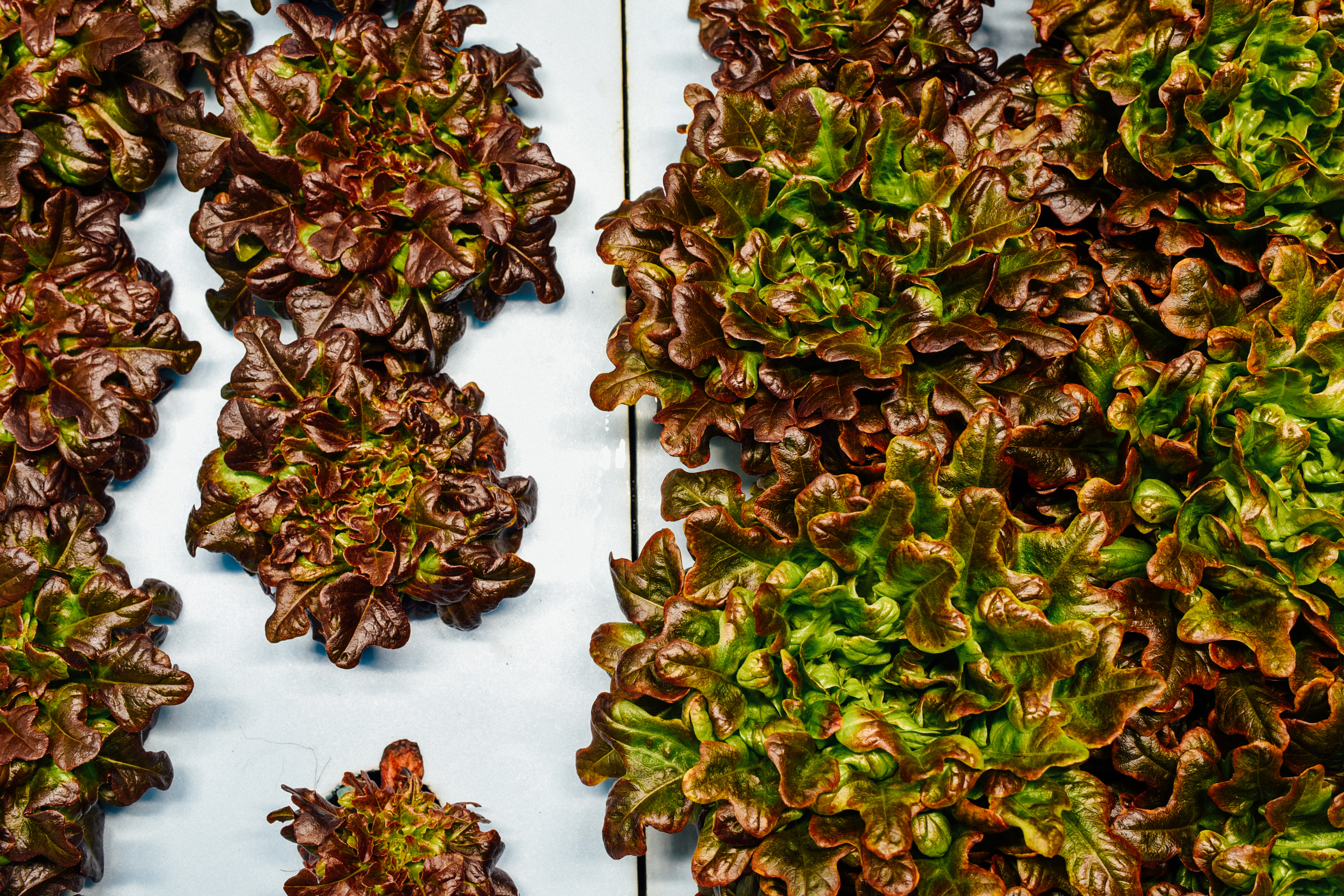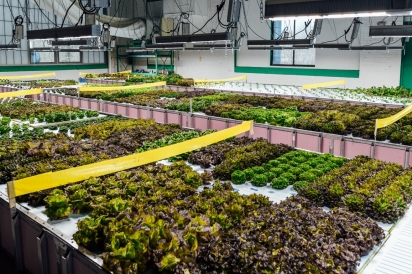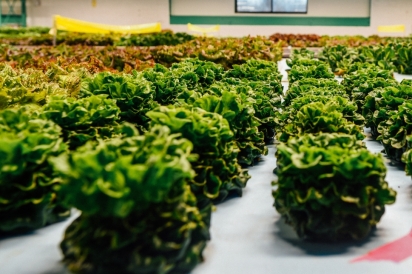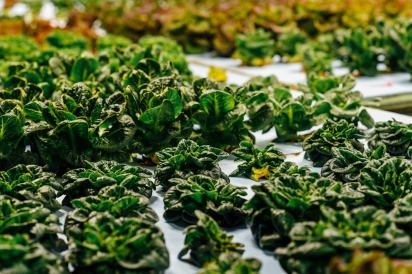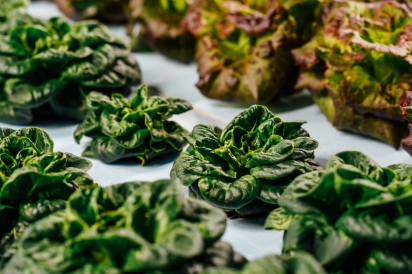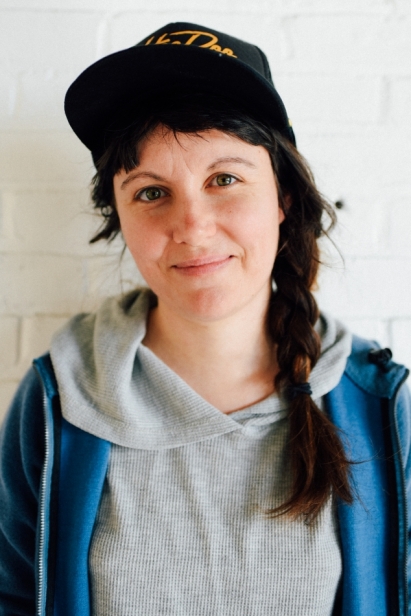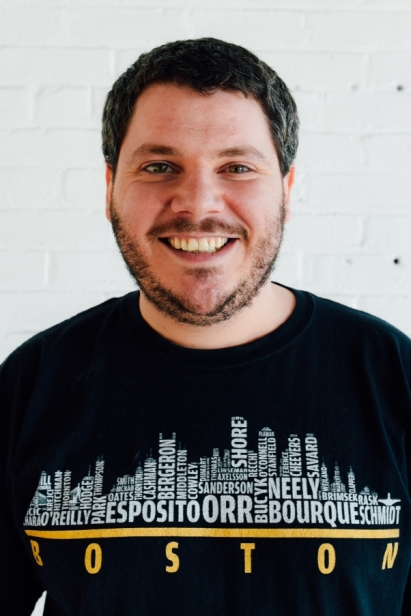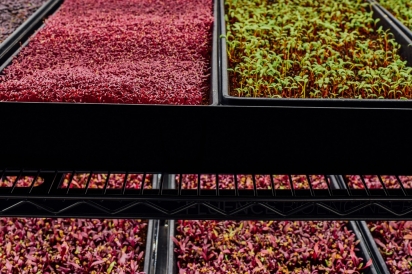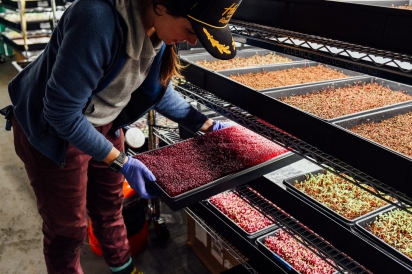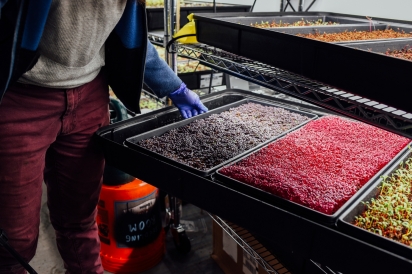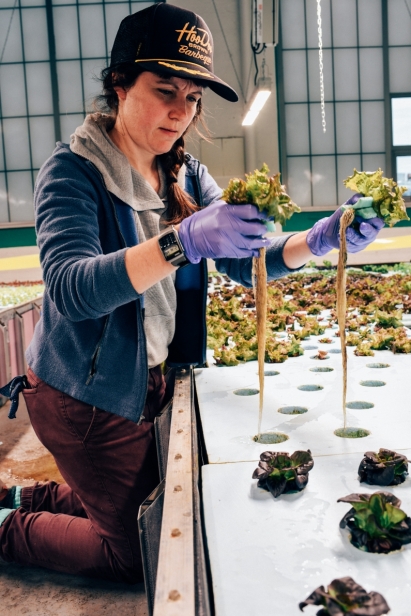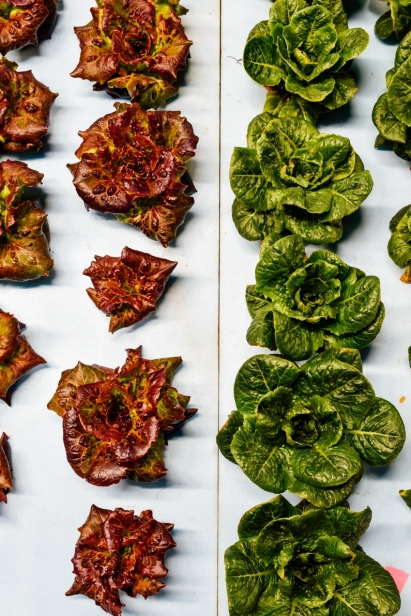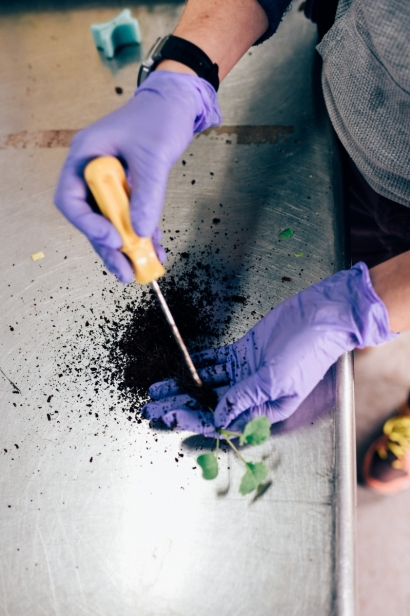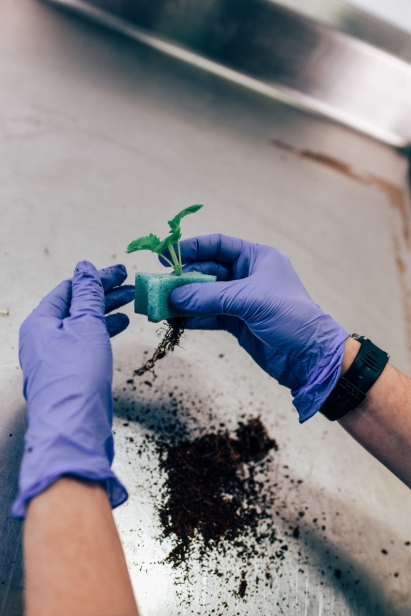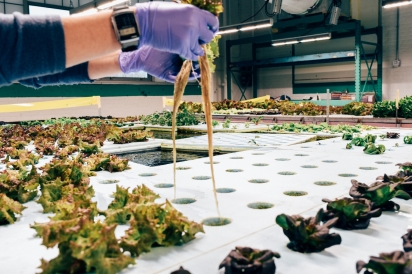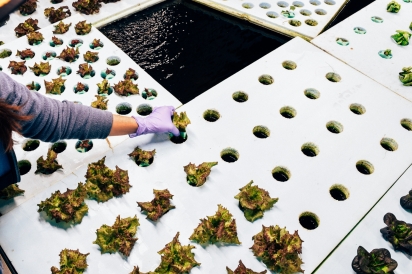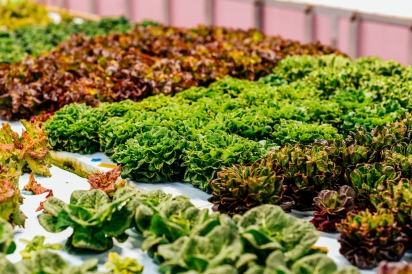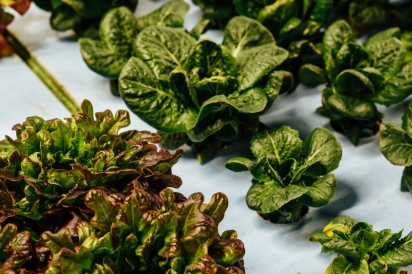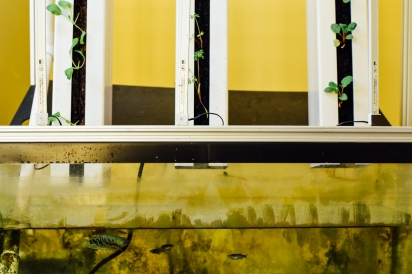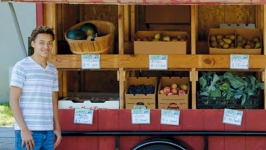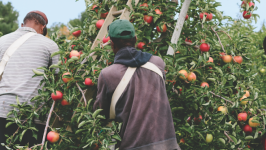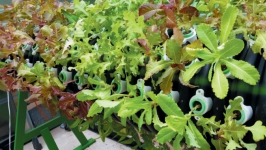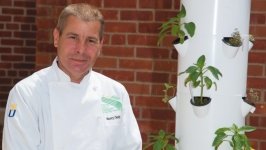Trifecta Ecosystems
In a refurbished Meriden factory that has manufactured everything from woolen goods to meat choppers, one agricultural startup is hoping to influence the future of Connecticut agriculture by redefining how cities are able to feed themselves. Trifecta Ecosystems, located in the appropriately named Meriden Enterprise Center, inhabits a suite of rooms that includes a research center and a 3,200-square-foot aquaponics farm, replete with tanks of hungry catfish and banks of LED lights hanging over floating foam barges that teem with varietal lettuces, chard, microgreens, and kale.
Just over six years ago, an idea was spawned in a small Boston apartment when two of Trifecta’s founders – Spencer Curry, now the company’s Chief Executive Officer, and Kieran Foran, Trifecta’s Chief Marketing Officer – wanted to reverse the effects of too many pizzas and not enough vegetables. But the act of increasing the plant content of their diets ultimately left them distrustful of mass-produced vegetables, which too often come with their own bevy of toxins. They decided the only way to ensure they had healthy vegetables was to grow their own, and their small apartment afforded them only one way to do it: aquaponics.
Aquaponics is a synthesis of aquaculture (raising aquatic animals, such as fish, in tanks) and hydroponics (growing plants in water, without soil). In an aquaponic system, as the fish are fed, their excretions ultimately fill their water with excess ammonia. This water is pushed through filters in which bacteria slowly convert that ammonia to nitrates, which become food for the plants as that water is circulated through their root systems. The plants absorb these nutrients and purify the water, which is then recirculated into the fish tanks, resulting in a largely self-sustaining ecosystem.
While the concept of aquaponics may seem like science fiction, Curry and Foran were inspired by this method, because of its centuries-old heritage. They discovered it while reading Charles C. Mann’s 1491, which details a history of the Americas prior to Columbus’ arrival. Both Curry and Foran found inspiration in the Aztecs’ chinampa system, which successfully fed the Aztec city-state and was essentially an in-ground aquaponics system. Thinking about agriculture on that scale led Curry and Foran to ponder why a modern city could not also feed itself, and that question remains core to Trifecta’s mission.
But to start, they needed to learn how to feed themselves. Aquaponic systems can be managed at almost any scale, and the two friends experimented with small systems in their apartment, to mixed results. “We flooded the bedroom three times,” Curry says, nostalgically. “Fish water in your bed is just gross, but we knew we had a solid idea.”
Confident, the young farmers returned to their Connecticut roots to further test their ideas. They built a backyard system that immediately paid dividends. “We grew too much food,” Curry says. So much, in fact, that they were able to start a winter CSA (Community Supported Agriculture) program and utilize a unique feature of an aquaponics farm: because the system can be managed entirely indoors, its productivity does not diminish during the traditional agricultural off-season.
As with many startups, there was early upheaval. Two members of the original team left to pursue other interests, but in 2014, Curry and Foran met Eric Francis while they were attending the award-winning reSET Accelerator Program, a four-month program to provide entrepreneurs with knowledge, networks, and resources to help make a venture successful. They found shared interests and soon joined forces. “There’s always luck and timing in entrepreneurship,” says Francis, who is now part owner and Chief Development Officer for Trifecta Ecosystems. The group later added Andrew Ingalls, now part owner and Chief Operating Officer, who brings scientific expertise to the team and provides research for the USDA.
Trifecta’s CSA program – which they call “The Weekly Harvest” – was an early success that continues to support their business. Besides providing healthy greens in its Weekly Harvest subscription, Trifecta also sources food from other growers to add items that they do not produce.
Growing food, however, is only a part of Trifecta’s business mission. In development is an on-site commercial kitchen that will help teach customers how to make the most out of their Weekly Harvest subscription. Trifecta is also engaged in a partnership with Chef Kashia Diaz-Cave to conduct cooking classes at nearby café and culinary education center, My City Kitchen. “We have a two-pronged approach,” Francis says, only part of which is to grow food. “One of the big things we want to do is help educate.”
Besides the in-house education programs, Trifecta has partnered with several Connecticut-based offices of The Arc (a national, community-based organization advocating for and serving people with intellectual and developmental disabilities) to engage people of all ages with agriculture. In 2013, Trifecta redesigned and upgraded a system at The Arc of MidState CT, and the produce grown in that aquaponic garden is served at the Arc Eatery, used in classes on healthy eating, and sold locally. “Our customers at the various Arcs are called ‘hidden farmer groups,’” Francis explained. “They get a benefit, because it connects people back to food, and the additional benefit is that it helps with soft skill development.”
Trifecta has also partnered with the Connecticut Regional Education Council (CREC), headquartered in Hartford, to help drive students’ understanding of food systems. Together they created a curriculum that will have students seeking an answer to this essential question: how does a city feed itself? The Trifecta team hopes to answer that question with a combination of aquaponics, hydroponics, and soil-based agriculture. “It’s going to take all of them,” Francis says. “We just happen to be the experts in aquaponics.”
As part of this curriculum, Trifecta has installed aquaponics systems in schools throughout Connecticut. These give students the hands-on experience of growing and harvesting food at a time when many children have become disconnected from an understanding of how produce is grown. Especially in urban areas, aquaponics systems provide students with exposure to food cultivation that they may have otherwise never experienced. While the schools own the systems, Trifecta services the systems to ensure they operate properly.
Being able to produce food locally has value beyond its educational benefits. On a national level, reducing food transportation has a measureable impact on pollution. Moreover, locally produced and consumed food has a positive effect on the community. “When you reduce food miles, you can grow for taste rather than for travel,” Curry says. “Also, it helps localize economies. Food and money stays in the community, and there is access to healthy foods.”
Restoring communities is another part of what Trifecta hopes their work can accomplish, and the management team sees their business as the perfect tool to build upon Connecticut’s aging agricultural and manufacturing heritages and meld them into a high-tech, future economy.
It’s a future that is beginning to look like the present: Trifecta will soon be christening a 20,000-square-foot space in New Haven that they hope will help them continue to pursue the question, how does a city feed itself? “That question is like our mission to the moon,” Francis says. “The challenges to answer it will lead to new industries and products and will give millennials something to get behind.”
Trifecta Ecosystems: 290 Pratt St., Meriden; 860-740-2104


